Lobhachhara and the great Nanka
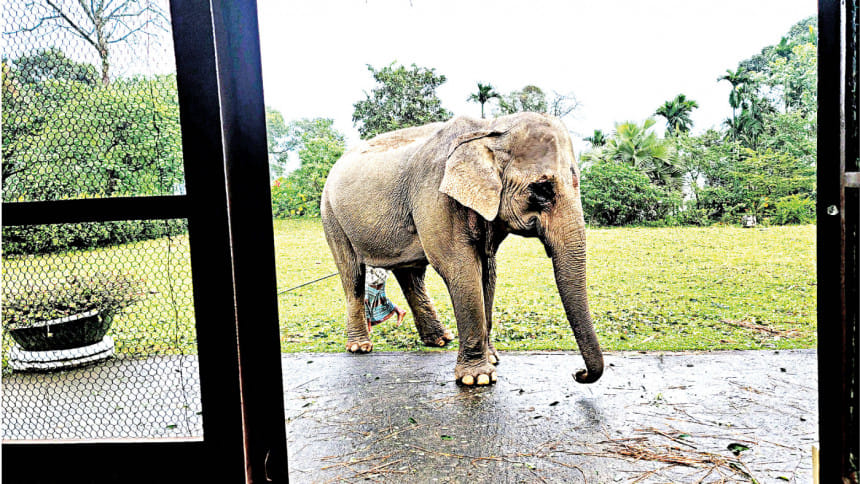
In late October 2021, my quest for documenting tea-planters' graves around the country brought me to Looba Cherra tea garden.
Some of you may find my quest odd, but that's what I love to do. Teacher by profession, my life's quest is now to travel and discover the heritage sites of Bangladesh. Since 2021, my search for the tea-planters' graves has taken me to many corners of the Sylhet division. After two years of travelling and documenting, I thought my work is done.
I was wrong. Recently, my cousin Professor Dr. Mohammad Shariful Huda informed me that there might be more graves of tea-planters in the Looba Cherra tea garden in Kanaighat.
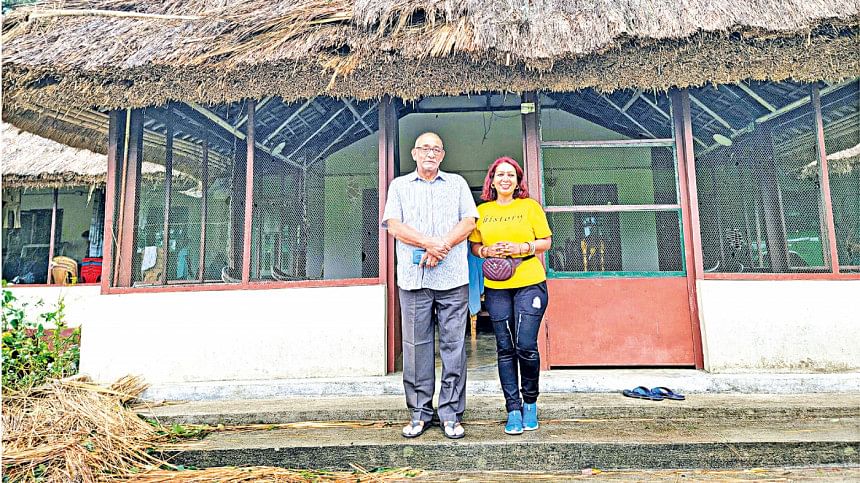
And I needed no second push to set out for Sylhet.
In Sylhet city, most people knew Looba Cherra tea garden, but no one knew about the graves. Unlike other scenic areas of Sylhet, Lobhachhara, which has a breathtakingly beautiful landscape, remains a less travelled tourist destination.
The name Lobhachhara, for an unknown reason, rang a bell in my heart – a special feeling that I might have developed over the years travelling around the world. Something told me inside that the trip would be special.
Lobhachhara tea garden in Kanighat upazila of Sylhet is located adjacent to the Indian border. There are a few ways to reach there, but, unfortunately, none of them is very vehicle friendly.
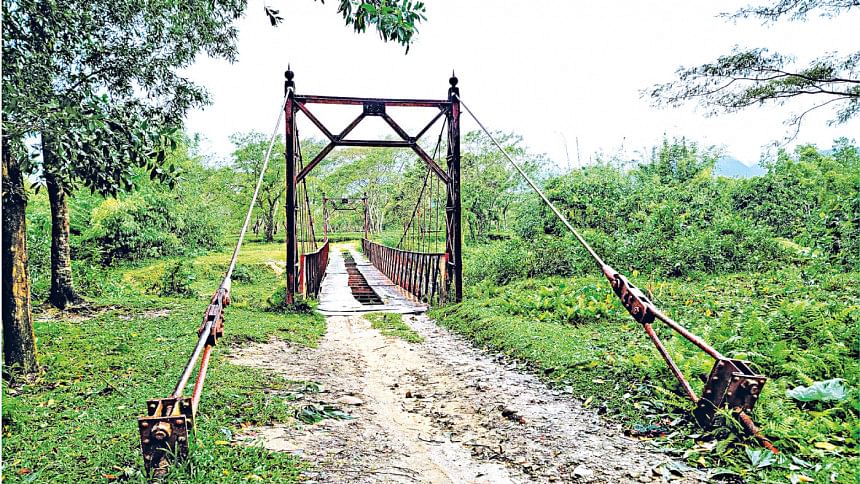
And from Kanaighat, the hilly and unpaved road to reach the tea garden makes normal vehicular movement almost impossible, even in the dry seasons. Unless you have a four-wheel-drive vehicle, motorcycles and some three-wheelers are your only hope.
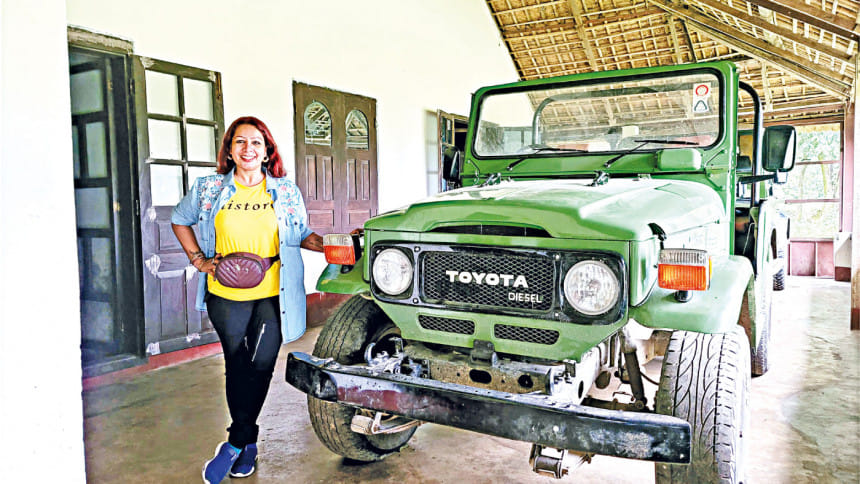
Reaching Sylhet from Dhaka, my concern was how to get permission to enter the garden. Though I am not a huge fan of social media, it came out as my rescuer. Finding the Facebook page of the Looba Cherra Tea Estate, I sent them a message stating my purpose of visit.
A prompt reply from the page surprised me. To be honest, as my experience taught me, I wasn't expecting much. Not only that, the admin of the page, Yunus Osman, gave me a clear idea how to reach there and also provided me with an emergency contact number.
That was a good start, I thought. However, I had no clue about the surprises awaiting me there.
On the way to Lobhachhara
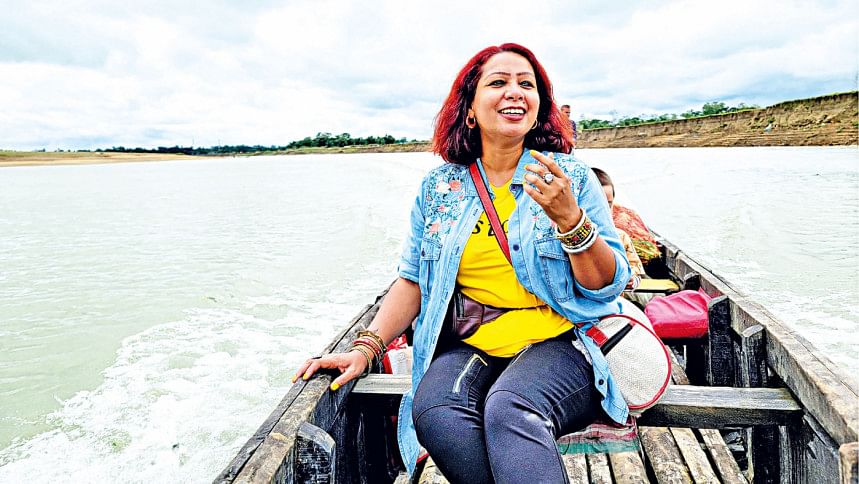
Leaving the hotel early in the morning, I took a bus ride to Kanaighat, which is around 55km from the city. You can go there by CNG-run three-wheelers too. But I opted for bus as it gives me an opportunity to interact with locals. It wasn't a joy ride. The road, at some places, was quite bumpy.
Reaching Kanaighat, considering my options, I choose the boat ride, which I found to be the most popular transportation means for locals, to reach the tea garden.
Asking locals, when I reached the ghat next to the Kanighat market, there were several boats on the Surma river. One can hire a boat or share a trip with locals. Fed by the water of last couple of day's heavy downpour, the Surma was flowing with grace. Locals told me that they mainly travel by boat to destinations along the river during the rainy season as the river remains navigable. But in the late winter, the Surma at some places loses its navigability, especially in the upper stream, forcing them to take the roads.
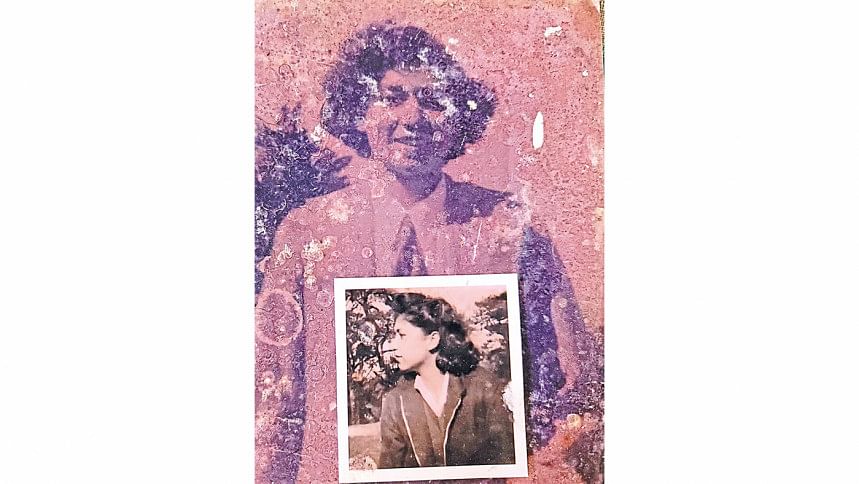
I opted to share the ride. When I asked the boatman to drop me at the Lobhachhara tea garden, I found that the locals were calling it Nanka's tea garden.
I wish the boat ride lasted longer! As the boat journey progressed, the beauty of the river and the lush greens and life around it changed. At every curve, the river offered something new!
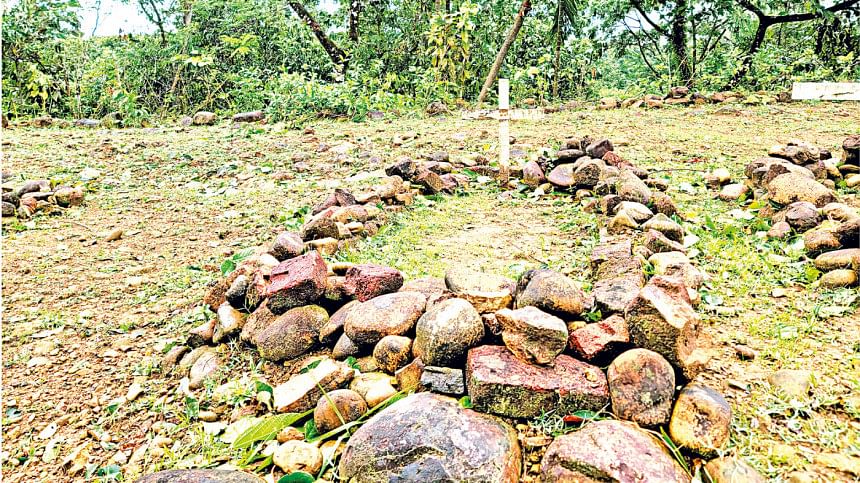
The boat turned left from the estuary of Surma and Lova rivers and our journey progressed through the Lova, probably one of the shortest but most scenic rivers in the country. Locals claimed, during the dry season, the stone-bedded, crystal clear river takes an even better look. Coming through the enormous mountains in India, the beauty of Lova, they said, demands a visit by every nature lover.
The Khasia-Jainta Hills in the northeastern border of Bangladesh is the source of a number of rivers in Sylhet. Among them, Jaflong, Bisanakandi on the Piyain river attract huge tourists. The Lobhachhara is one such place on the Lova, but less trodden.
After 40 minutes, the boat stopped at a ghat. The boatman informed me that I had reached my destination. Getting off the boat, a few minutes' walk it took to reach the gate of Lobhachhara tea garden. While introducing myself to the security guard, Yusuf Osman came to welcome me.
Lobhachhara Tea Estate
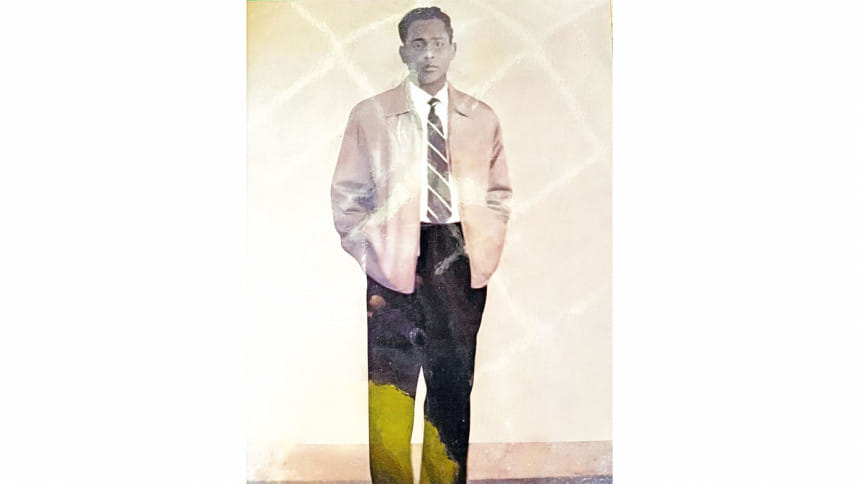
Inside the 1840-acre British-era tea estate, it felt like the outside world had little to do with its proceedings. The idyllic tea plants, the apparent lack of activities and the postcard-like background of mountains gave me the feeling that time had stopped there!
Osman escorted me to the residence of the owner of the estate, James Leo Ferguson. After going uphill on the rocky road, my eyes widened to see the old thatched bungalow. Last I saw this kind of structure in Japan's Niigata city. It was 200 years old.
The magnificent bungalow in the tea estate was built in 1876. Old jeeps, British-era switch boards, lamp shades, wooden cupboards, old photos – there were plenty to watch around.
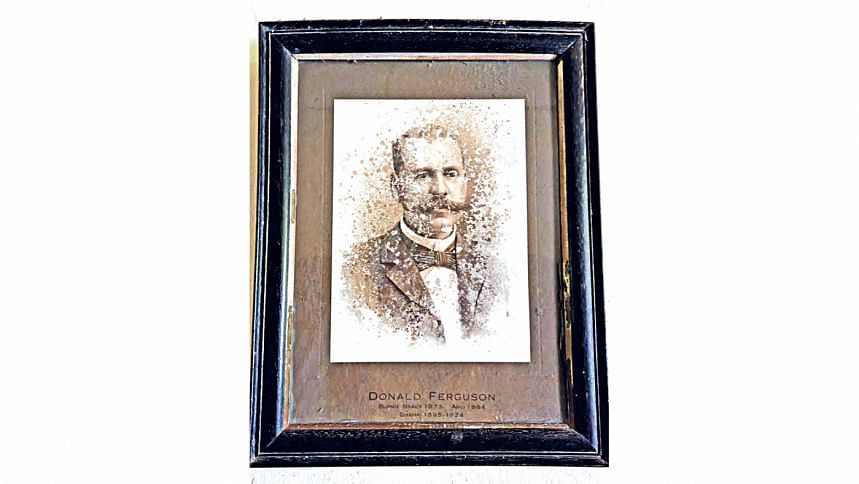
Meeting the great Nanka
"How are you, Eliza? Welcome. I am James Leo Ferguson, a freedom fighter of the Liberation War of Bangladesh."
As I turned to the source of that heavy, deep voice, I saw a tall handsome man looking at me with smile. I wasn't quite ready to meet Ferguson.
I went to the tea estate in search of graves of tea-planters. I had no idea how many surprises were waiting for me there.
As I visited the family cemetery of Fergusons, I found the grave of June Ferguson, the first woman tea estate manager of this subcontinent.
British writer John Radford wrote the only book about Sylhet's tea-planters' graves. This information was missing in his book.
June Ferguson is the mother of James Leo Ferguson, the only Bangladeshi freedom fighter of Scottish origin.
The experience I gathered in conversation with the Scottish-origin fierce Bangladeshi was priceless.
Ferguson, who was born in the same bungalow where we were talking while having tea, said they were originally from Scotland and Fergusons had a family tradition of joining wars. His great grandfather Donald Ferguson had fought in World War I. Then his grandfather James Arthur Ferguson fought for the British army in World War II.
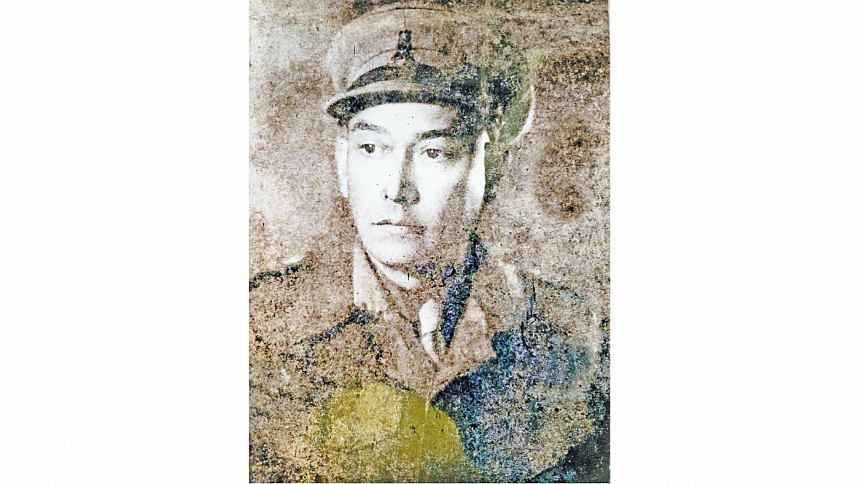
He said his family also had a history of working in tea estates. After the World War II, James Arthur Ferguson retired from the army and joined Isabella Tea Estate in India. Later, June Ferguson, daughter of Arthur, became the manager of Lobhachhara tea estate, which was bought by the family.
Immensely proud as a freedom fighter, Ferguson's affection for his family, especially for her mother June Ferguson, the woman who inspired him to join Bangladesh's Liberation War, was evident.
"I participated in the Liberation War with the inspiration of my mother. I fought in sector 4. My sector commander was Chitta Ranjan Dutta," said a beaming Ferguson.
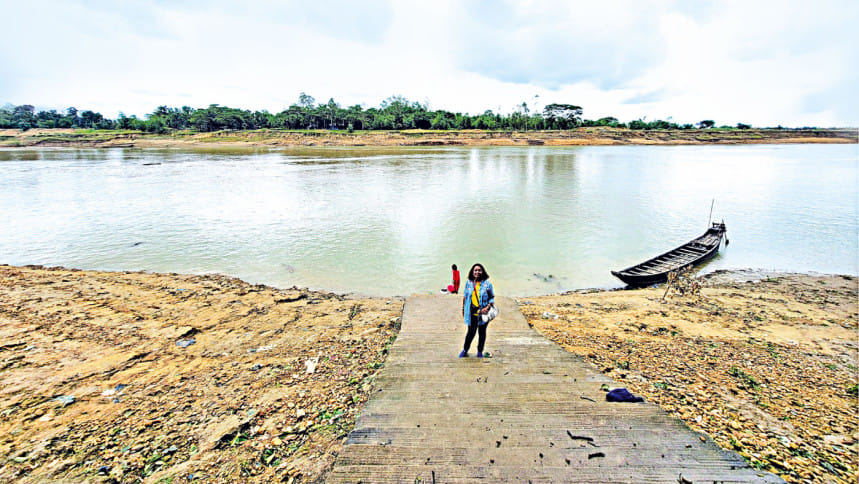
After Bangladesh's liberation, he joined local politics. He was elected chairman of Lakshiprasad Union of Kanighat several times, serving the people for 17 years. That's why locals affectionately call him Nanka.
The conversation was fascinating. In fact, there were so many topics to discuss – the history of the tea estate, June Ferguson, Liberation War. He affectionately showed me the collection of his family photos, including that of June Ferguson and his ancestors.
In the midst of all this, I also met Mukta, a 40-year-old pet elephant of Ferguson. It seemed the animal could understand its owner as it greeted me after Ferguson's verbal instruction.
What was meant to be a short trip, ended up being a whole day experience with Fergusons. Ferguson's sister and her family were living in the bungalow. I met everyone -- Yusuf Osman, Yunus Osman, Jesse Ferguson, and Ira Ferguson. Though Ferguson's wife and children are living in London, his love for the land kept him at Lobhachhara.
Nanka, who can speak eight languages, showed his driving skills too when he drove me to Kanaighat by his four-wheel jeep through the hilly dirt road.
As an unknown guest, it was overwhelming to receive so much love.

 For all latest news, follow The Daily Star's Google News channel.
For all latest news, follow The Daily Star's Google News channel. 



Comments